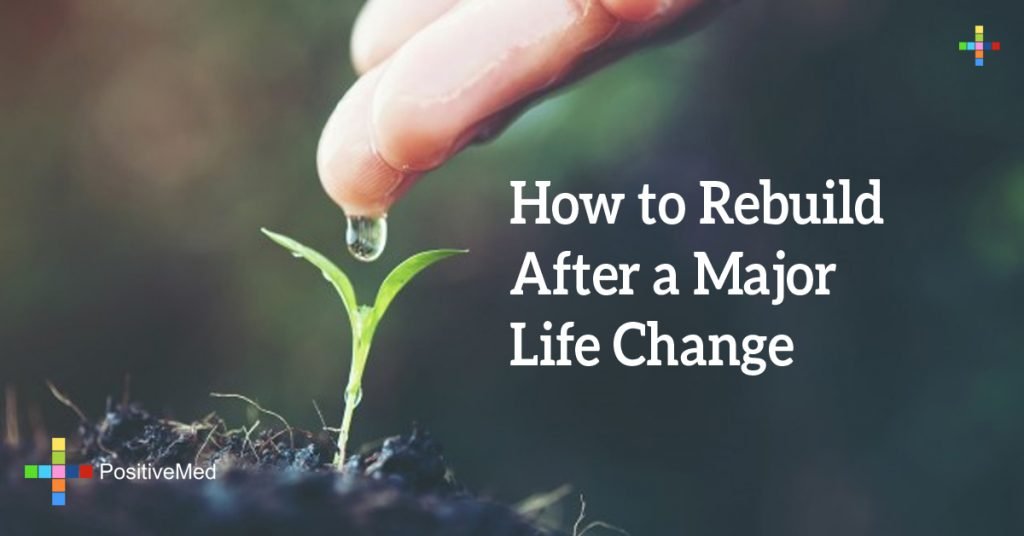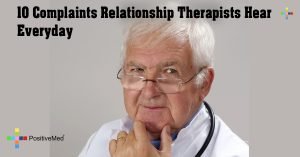
Some major life changes, like marriage, job promotion or retirement, make us feel excited about what’s ahead. Other big changes, like a frightening medical diagnosis, the death of a loved one or a divorce, make us terrified of what’s to come. No matter what type of transition you’re facing, you can rebuild after a major life change.
What Are Life’s Biggest Stressors?
Many counselors refer to a scale called the Holmes-Rahe Stress Inventory to measure how stressors in your life could affect your overall health. Major negative stressors include the death of a loved one, divorce, job loss or major illness.
However, positive events, like marriage or reconciliation with an estranged spouse, are also among the top 10 stressors on the Holmes-Rahe scale. Whether they’re viewed as positive or negative events, life’s biggest stressors have some common characteristics:
•
Loss
. The element of loss is obvious during a death or divorce because you’re grieving for a loved one or for life as you knew it. However, positive events also involve loss. For example, getting married means losing elements of independence, and retiring means losing work that added meaning to your life.
•
Identity shift.
Life’s changes often leave people asking themselves, “Who am I now?” Someone who is fired from a job or who retires from a job, for instance, sheds a meaningful identifying label.
•
New routines and heavy task loads
. Big stressors add a lot of additional small stressors to your to-do list. For instance, when a spouse dies, you not only lose your partner but also have to deal with memorial services, estate plans, insurance payments or even finding a new home. These minor difficulties, along with changes to your life routines, could cause major challenges as you adjust.

How Should You Cope?
Finding someone to talk to is one of the most important things you can do during life’s big changes. Therapists and social workers are valuable resources when you are adjusting to a life-altering event, good or bad. In addition to seeking out one-on-one counseling, you might also join a support group. Support groups allow you to talk freely about your journey while receiving validation and advice (if you want it). Group members often understand your struggles better because they’re experiencing a similar journey.
Family and friends are important resources when you’re struggling with a big change. Often, your loved ones don’t know how to help you, but that doesn’t mean they don’t want to help. Even if they say awkward things or even avoid you for a little while, don’t count them out of your life. Speak up and articulate your needs so that they know exactly how to support you. If you need emotional support, financial assistance or logistical help, such as help driving to medical appointments, then lean on the people who love you.
What Else Can You Do?
In addition to asking for help, these additional steps might make you feel better as you adjust to your new circumstances:
•
Help someone else
. Volunteer or find other ways to ease someone else’s troubles. Helping someone else can take your mind off of your difficulty.
•
Explore new activities
. If you’re missing a part of your identity because of a life change, fill in the gaps by trying new activities. You might find either an undiscovered talent or a passion you never knew you had.
•
Find quick victories
. Although long-term goals are worthwhile, solving problems that will provide you with an immediate benefit could make you feel like you’re making progress.
•
Pamper your body and mind
. Make it a priority to rejuvenate your body and mind. For your body, try gentle exercise, massage or other relaxing activities. For your mind, try prayer, journaling or meditation.
•
Take your time
. Whether you’re settling into a bigger job role or adjusting after a divorce, you’ll need time to fit into your new identity. Go easy on yourself for a year or two as you adapt to different circumstances.
Affirming the New You
You might discover that friends, routines or activities that were a part of your old life no longer fit with the new you. It’s okay to let go of what longer serves you. Just make sure that you do it graciously.





